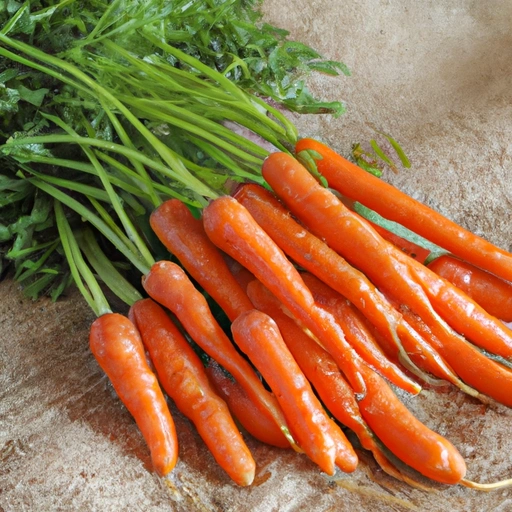Carrot
Description

The carrot (Daucus carota) is a root vegetable often claimed to be the perfect health food. It is crunchy, tasty, and highly nutritious. Carrots are a particularly good source of beta carotene, fiber, vitamin K1, potassium, and antioxidants.
In terms of measurements, carrots are versatile and used in a variety of quantities, from grams in European recipes, ounces and pounds in American recipes, to cups when grated or chopped. An average medium-sized carrot weighs about 61 grams (2.2 ounces), and a cup of chopped carrots is approximately 128 grams (4.5 ounces).
Common uses
Carrots are commonly used as a raw snack, grated in salads, included in soups and stews, or as a sweet ingredient in cakes and puddings. They can also be found in baby and pet foods, and their juice is popular as a health beverage.
Nutritional value
Calories
A medium carrot contains about 25 calories (104 kilojoules).
Protein
Contains about 0.6 grams (0.02 ounces) of protein.
Fat
Carrots are low in fat with only 0.1 grams (0.0035 ounces) of fat per medium carrot.
Carbohydrates
Carbohydrates content is around 6 grams (0.21 ounces), which includes about 2 grams (0.07 ounces) of dietary fiber.
Vitamins
Rich in beta carotene, which is converted into vitamin A in the body, and provides over 200% of the daily value in a single medium-sized carrot. Also a good source of vitamins B, C, and K.
Minerals
Provides minerals such as potassium and smaller amounts of sodium, calcium, and iron.
Health benefits
Regular consumption of carrots can help improve vision health due to their high vitamin A content. They also contribute to skin health and wound healing, and the fiber in carrots can aid in digestion and weight management.
Potential risks
Overconsumption of carrots can lead to a condition called carotenemia, which is the yellowing of the skin due to high levels of beta carotene in the bloodstream. However, this is reversible and not considered harmful.
Common recipes
Recipes include carrot cake, carrot soup, glazed carrots, carrot and coriander salad, and roasted carrots.
Cooking methods
Carrots can be boiled, steamed, roasted, fried, pureed, or eaten raw. They are a versatile vegetable that can be prepared in a myriad of ways to complement various dishes.
Pairing with other ingredients
They pair well with flavors such as ginger, honey, cinnamon, nutmeg, orange, raisins, and nuts, as well as with proteins like beef, chicken, and tofu.
Summary
Carrots are a highly nutritious and versatile vegetable with a long history and numerous health benefits. They can be used in a multitude of culinary applications and are available worldwide.